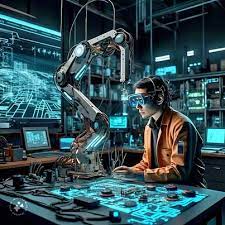As artificial intelligence (AI) continues to evolve and emerge in different industries, there are concerns regarding which careers will be affected, automated, or entirely replaced by technology. AI has already shown potential in careers such as data analysis, content writing, illustration, ghostwriting, and customer service.
However, there are still many lucrative jobs that AI is unlikely to do. AI has limitations; it is unable to replicate certain skills that are inherently human, such as empathy, creativity, ethical decision-making, and leadership. Today, we are exploring five high-earning careers that are safe from being entirely taken over by AI.

1. Surgeons and Physicians
Surgeons and physicians are ranked among the highest-paid professionals in the world, and they do not have to be concerned about AI technology taking over their careers. They are among the safest jobs globally because AI cannot replicate the level of expertise that human doctors have. While AI has been used in the healthcare field, such as assisting with medical diagnosis, AI falls short when it comes to judgement, intuition, and empathy.
Human biology is unpredictable, and AI cannot make split-second decisions during complex surgeries. It can not completely understand the emotional distress that patients feel, nor can it comfort penitents efficiently. While AI may continue to assist health care with certain tools, human doctors are needed for their leadership and decision-making skills.

2. Psychiatrists and Psychologists
AI technology cannot threaten careers in mental health. Professionals such as psychiatrists and psychologists, are pivotal in understanding the complexities of human emotions, behaviour, and cognitive disorders, make them irreplaceable by machines. AI tools have assisted in the mental health care field, including diagnosis and supportive mental health apps.
These have been very useful in helping mental health patients, but AI can not replicate the human skills of psychiatrists and psychologists. The sensitive and complex nature of mental health requires a deep connection, empathy, and nuanced understanding, all of which human therapists possess. Therapists utilise emotional intelligence and an individualised approach to connect with their patients and create a safe environment where they feel heard and understood.

3. Lawyers and Judges
Among the highest-paid and irreplaceable professionals are lawyers and judges. The legal profession is highly intellectual and requires an understanding of complex laws, ethical issues, and human judgment.
AI cannot replace human skills such as critical thinking and decision-making, which are required in legal practices. AI technology has been used to perform legal research, document viewing, and contract generation. However, AI can not creatively form arguments or utilise empathy and negotiation skills to settle legal problems as lawyers do. AI technology may be able to cite legal facts from online sources, but it can not consider the ethical implications, societal context, and personal circumstances, which judges must do when overseeing cases.

4. Engineers (Civil, Electrical, Aerospace, etc.)
Engineers, including civil, electrical, and aerospace, design, build, and oversee the systems that shape our world. AI can not replicate their technical expertise, creativity, and innovation. AI cannot solve complex, real-world problems the way engineers do.
AI has been used to create simulations, provide data analysis, and provide problem-solving assistance. While AI can offer assistance with calculations and repetitive tasks, it cannot replace the human problem-solving skills that engineers use to change variables in their inventions regarding safety standards and environmental concerns.

5. Data Scientists and AI/Machine Learning Engineers
Data scientists and machine learning engineers are among the most sought-after professionals in the tech world. They create and improve AI technology which prompts many to feel concerned about the safety of their jobs. However, as the creators, they can not be replaced by their creations.
Their expertise in statistics, programming, and mathematics to develop algorithms that help machines “learn” makes them irreplaceable. AI systems require these experts to train and improve their algorithms, as well as innovate new models. The skills utilised by data scientists and machine learning engineers to solve complex technological problems and enhance these systems cannot be replicated by AI technology.

